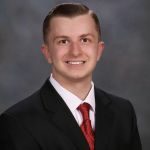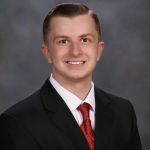Academic free speech, specifically extramural speech, is always a hot topic, but right now it’s hotter than usual.
Extramural speech is defined by the Oxford English Dictionary as being “outside the walls of a town, college, or institution.” In the case of Cabrini, that extramural speech came from Dr. Kareem Tannous, a business professor terminated by the university in August 2022. Tannous has since filed a lawsuit against the school.
The lawsuit
The grounds for Tannous’ termination appeared to be a series of antisemitic tweets from his personal account, which spread hateful rhetoric and misinformation about Jewish people and Israel. His employment officially ended on Aug. 12, 2022.

However, in his lawsuit, it is stated that “At no time, did [Tannous] use Cabrini software or hardware to originate his tweets, nor did he indicate in his tweets that he was affiliated with Cabrini. Further, at no time did he bring his political views into his classes and at no time did any students raise questions to him about the subject of the tweets.”
Controversies around speech don’t always come from outside an institution. Consider the case of University of Pennsylvania law professor Amy Wax, who garnered severe backlash for her controversial remarks on race.
In this case, the main difference is that the speech in question was intramural speech, or speech that came from inside the university, and took place in a classroom setting. Wax is also a tenured professor. The University of Pennsylvania defended her, with law school dean Ted Ruger stating in an email to students, “All faculty and students here will remain free to express their views. And all students and faculty are entitled to a law school that welcomes them equally as individuals.”
The dilemma
Tannous’ case against Cabrini raises a different question: should professors be held accountable for what they say outside of school? And if so, to what extent, and where is the line?
Cabrini’s social media policy states that social media users may publicly identify themselves as Cabrini faculty or staff. However, it advises them to be clear with the user’s audience that their views and opinions are theirs alone, and don’t reflect those of the university.

Additionally, the policy forbids the use of Cabrini’s logo or image on personal social media accounts, as well as the use of Cabrini’s name to endorse a product, cause, or political party. It also states that “Cabrini has the right to dismiss any employee who posts (privately or publicly) threatening, hateful, and/or any type of information that puts the university, its students, or other employees at risk.”
Cabrini’s faculty handbook states on page 54 that “Teachers are entitled to freedom in the classroom in discussing their subject, but they should be careful not to introduce into their teaching controversial matter that has no relation to their subject.”
The handbook also states on page 86 that faculty can be terminated “due to malfeasance or conduct not meeting University ethical or other professional expectations applicable to Cabrini University faculty.”
In an article for the American Association of University Professors, Dr. Keith Whittington, a professor of politics at Princeton University, argues that “cultivating a professoriate willing to speak its mind on any topic and in any forum is a necessary precondition for intellectual progress. Extramural speech might not contribute much to that progress, but failing to protect such speech might well hamper the kind of advancements in human knowledge that we most care about.”
Regardless of whether or not extramural speech should be protected, what professors say, inside or outside of school, has an impact on others. “I think everyone should be held accountable to a certain extent because it does hurt other people,” said Ashley Grant, freshman criminology major. “Even if it’s your own personal beliefs, they can endanger other people.”







